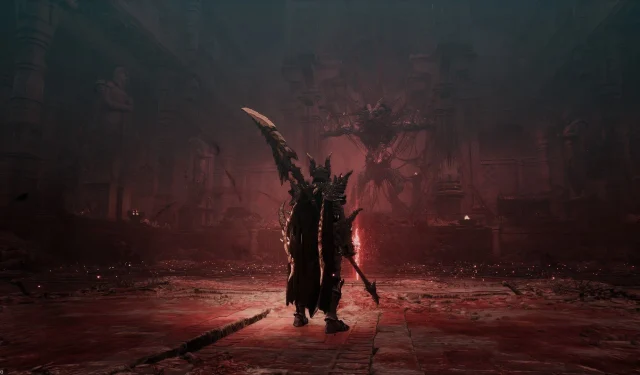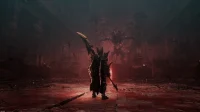Initially revealed at TGA 2023, The First Berserker Khazan didn’t capture my attention. Although the combat system featured in the trailer showcased an engaging aggressiveness, my weariness with numerous games attempting to replicate the Dark Souls formula led me to overlook it as just another souls-like title. Little did I know, my dismissal would prove to be unfounded.
By late 2024, curiosity led me to explore the demo for The First Berserker Khazan. Despite my earlier reservations, the experience was surprisingly captivating. Upon trying the demo, I quickly recognized that it transcended the typical souls-like mold, offering something distinctly unique.
The combat mechanics impressed me immensely. While I had some critiques—such as the narrow parry windows and the lesser impact of weapon differences compared to parry and dodge mechanics—my excitement for the full game had certainly grown. After completing it, I confidently assert that Khazan exemplifies what a premier souls-like can be.
Immersive Art Style and Sound Design
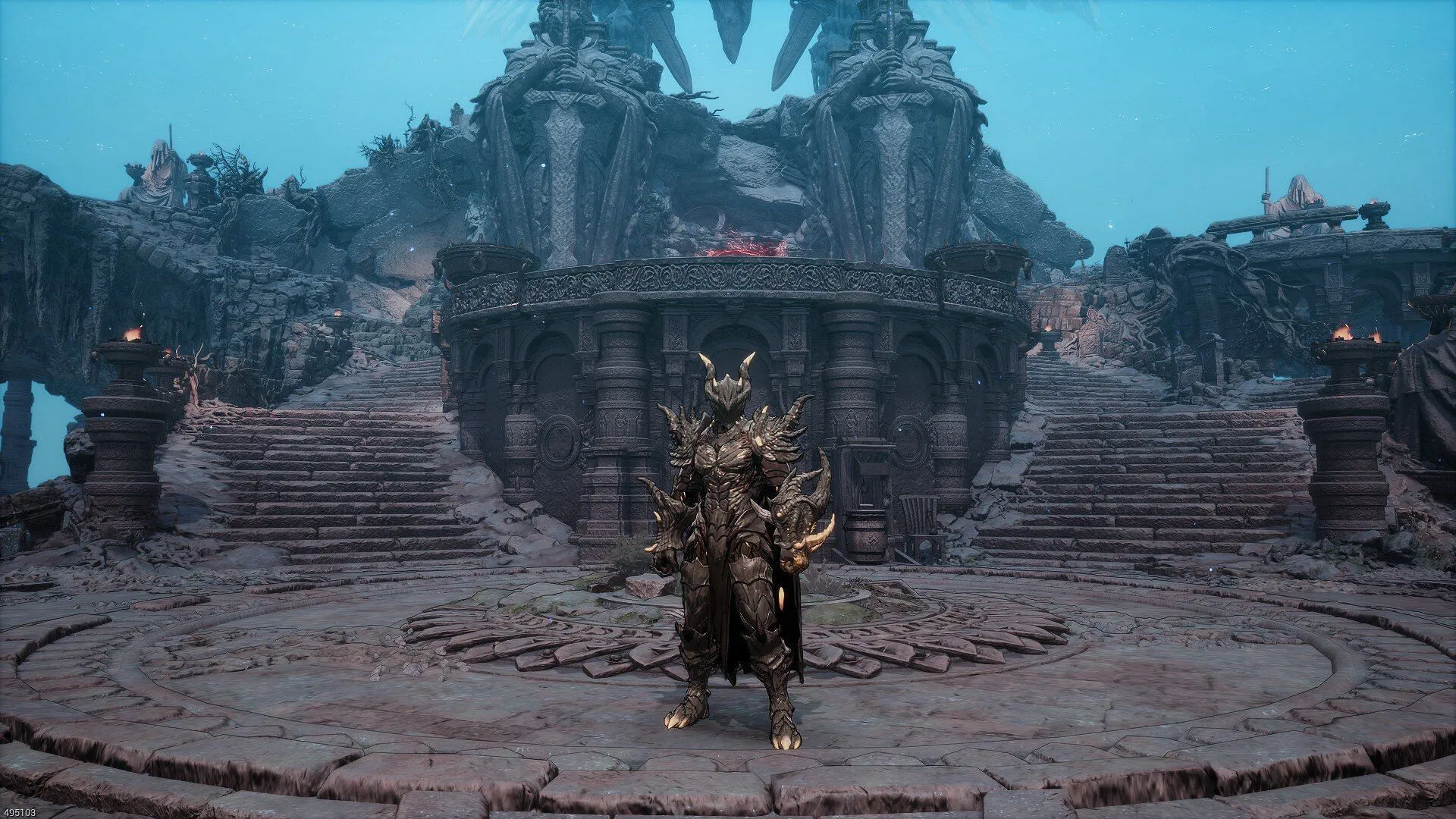
As a fan of stylized visuals, I found The First Berserker Khazan‘s aesthetic appealing. The game’s art style, reminiscent of the beloved Darksiders series, left a lasting impression since its announcement, making it visually memorable.
The cell-shaded visuals, combined with a comic-book-like presentation and fully motion-captured cutscenes, contribute to the game’s charm. Additionally, the user interface is elegantly simplistic, avoiding unnecessary clutter.
From the outset, it is evident that this game is crafted with passion. It even includes a dedicated Arachnophobia Mode, but I did observe one drawback—its somewhat monotone color scheme. Unlike Darksiders, where vibrant hues contrast with cell-shaded graphics, Khazan opts for a more subdued aesthetic. While the darker tones align with the narrative, they do limit the visual richness.
Greater color variety, particularly in the game’s initial levels, would enhance the experience. However, the later chapters successfully embrace darker visuals, particularly during chaotic moments. An exception is the opening area, Heinmach, which stands out with its snowy brightness.
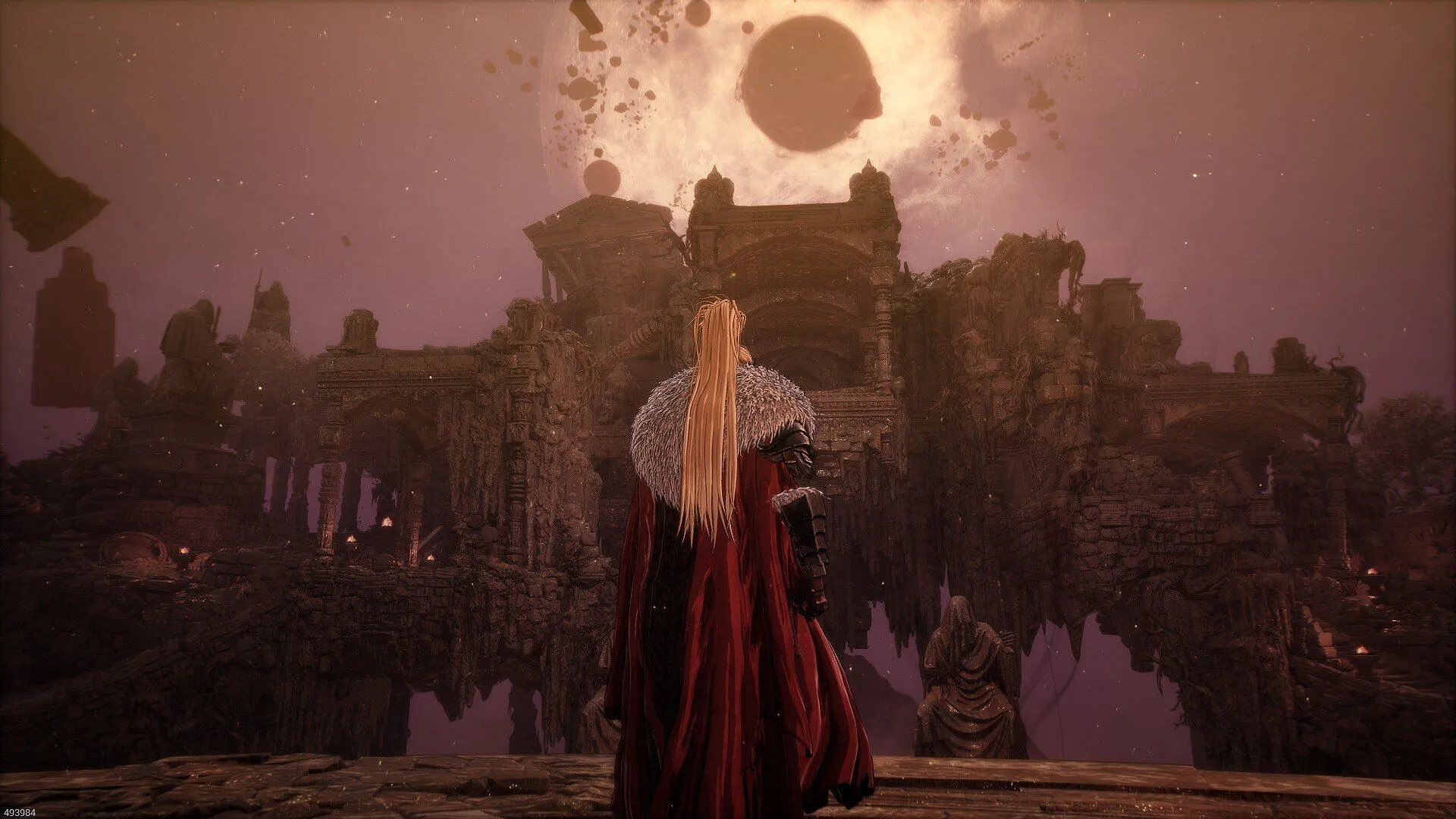
Moreover, the audio design in The First Berserker Khazan is noteworthy. The soundtrack is a hallmark of quality in standout souls-like games. With tracks that enhance lush boss encounters and immersive exploration, it forms a critical component of the overall atmosphere.
A Fluid and Engaging Combat Experience
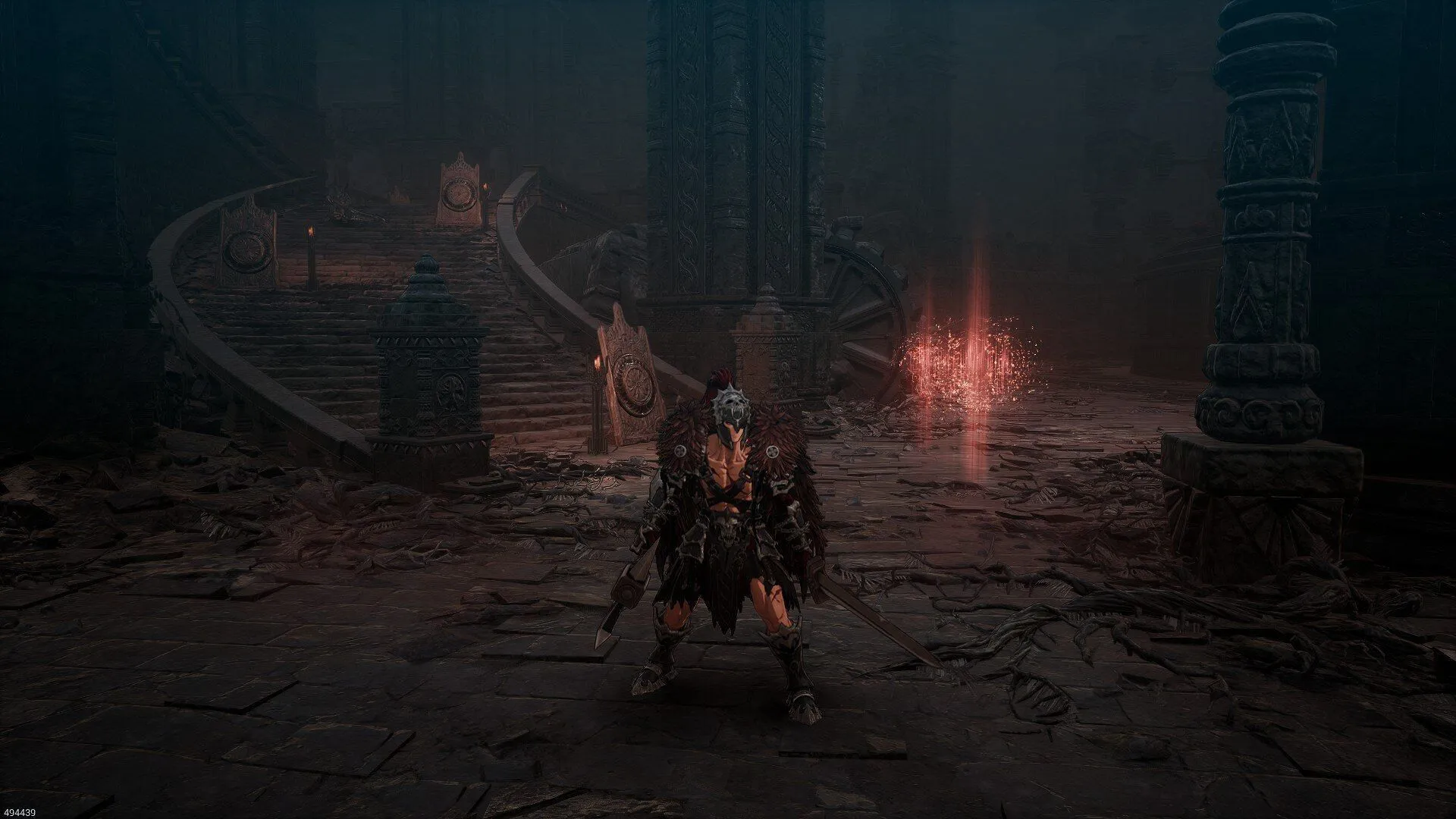
Initially, I found the combat in the demo somewhat lacking; it felt floaty and unresponsive. I appreciated unique skill interactions but wasn’t as captivated as I was with other titles like Lies of P or Lords of the Fallen. However, after experiencing the entirety of the game, I can confidently assert that The First Berserker Khazan offers a refined combat system remarkable in its precision since Nioh 2.
The combat focuses on strategic counterattacks and defense rather than brute force. You are encouraged to learn the mechanics and refine your skills as you progress. Parrying stands as the primary form of defense, with numerous opportunities for counterattacks through two distinct parry systems.
The first method is a classic parry performed through perfectly-timed blocks, while the second, known as Reflection, requires timing precision to execute a more impactful counterattack. The parries feel rewarding thanks to their well-calibrated timing, striking a balance that makes mastering them gratifying.
The Burst Counter is akin to Sekiro’s mechanics, providing additional strategy layers. Although the game offers only three weapon types, this design choice allows for deeper optimization within each class. I initially yearned for a broader selection but now see the advantage in crafting those three into unique experiences.
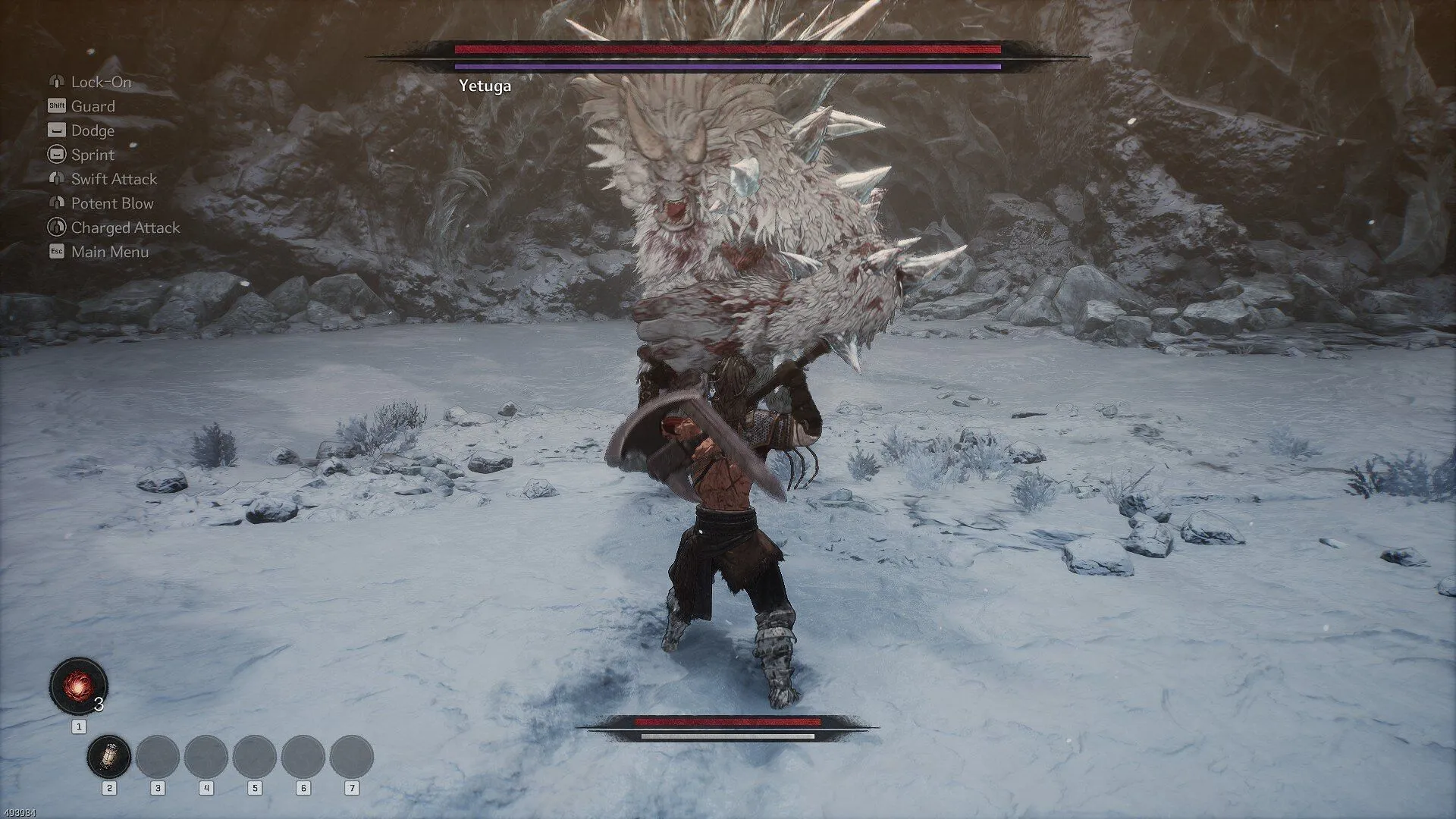
While the weapons feel less varied, the combat encourages fluidity and provides ample opportunities for creativity. However, I noticed some skills are unbalanced, nudging players towards specific abilities. A bit more adjustment could enhance the overall experience.
Memorable Boss Encounters
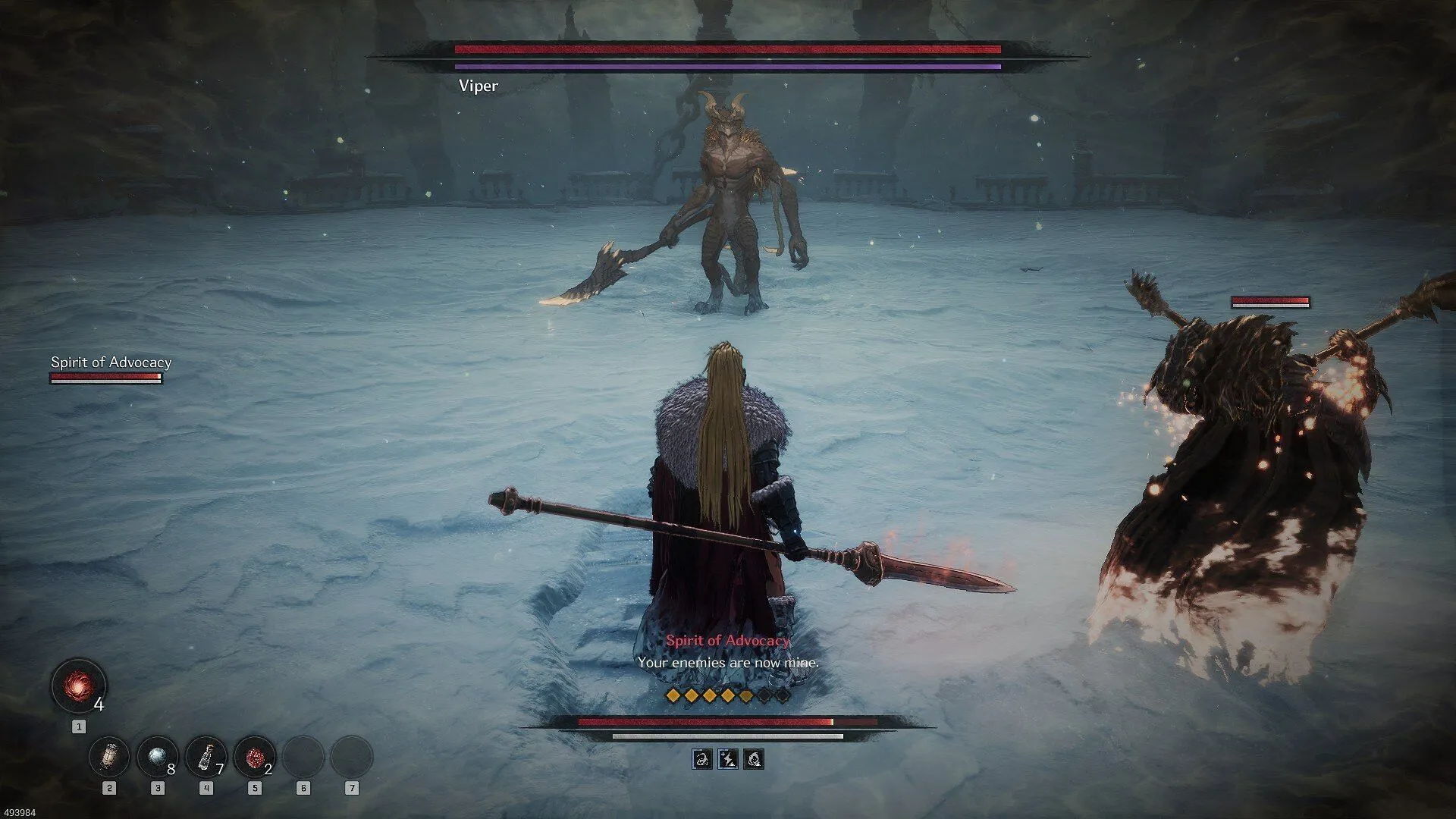
The essence of any souls-like game lies within its boss encounters, and The First Berserker Khazan triumphs in this aspect. Every boss, except a few optional encounters, presents unique challenges and mechanics. I savored the challenge of each fight.
Notably, the game strikes a balance between spectacle and mechanics, creating a captivating atmosphere even when faced with larger, beast-like adversaries. It excels in both humanoid and creature battles, establishing a new standard for boss encounters in the genre.
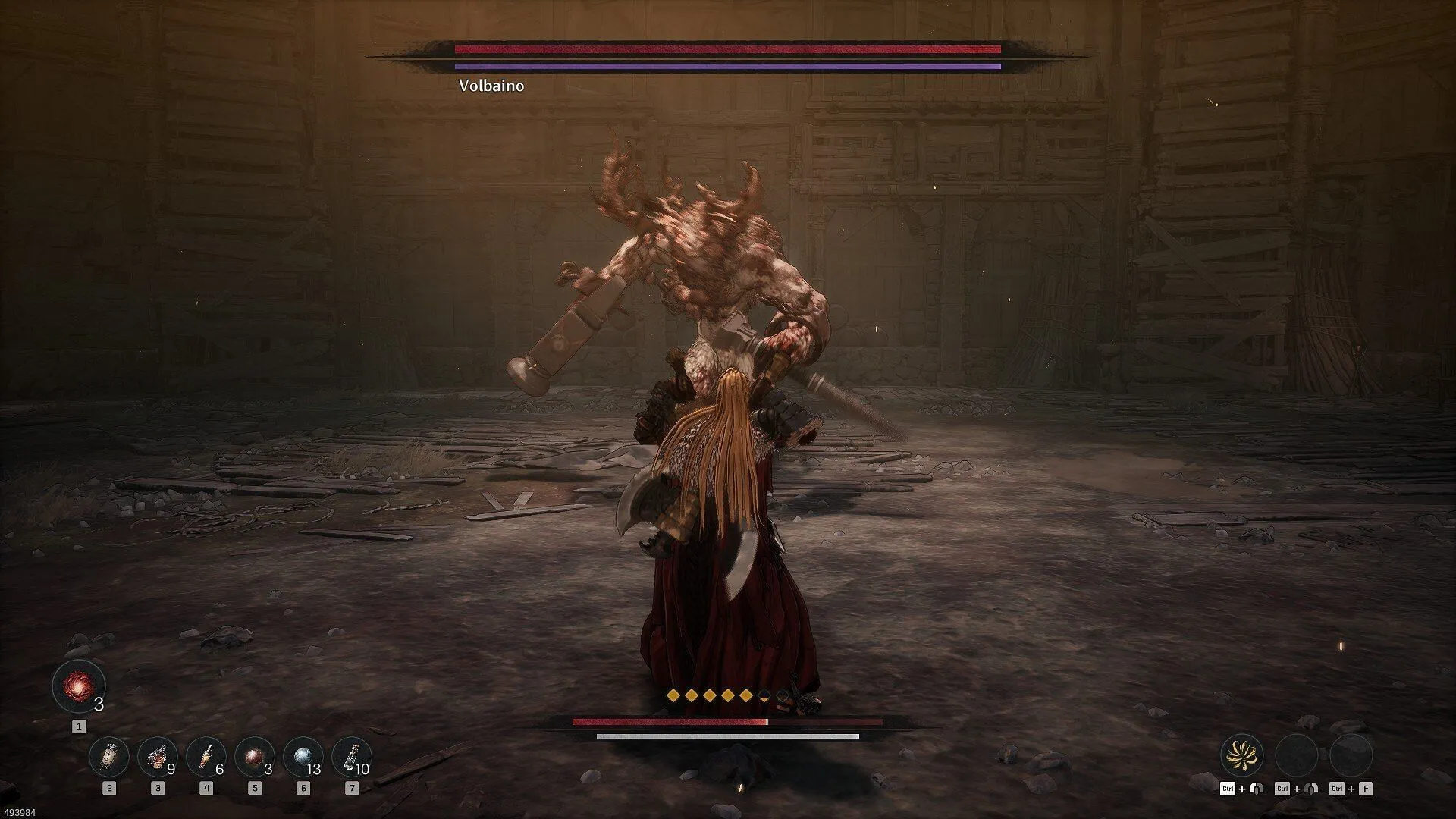
FromSoftware fans will appreciate the clever nods to familiar designs in the boss encounters. I encountered one particularly reminiscent of Sekiro’s Genichiro, alongside a clever homage to Guardian Ape with its fake “mission complete” moment.
Progression System That Rewards Skill
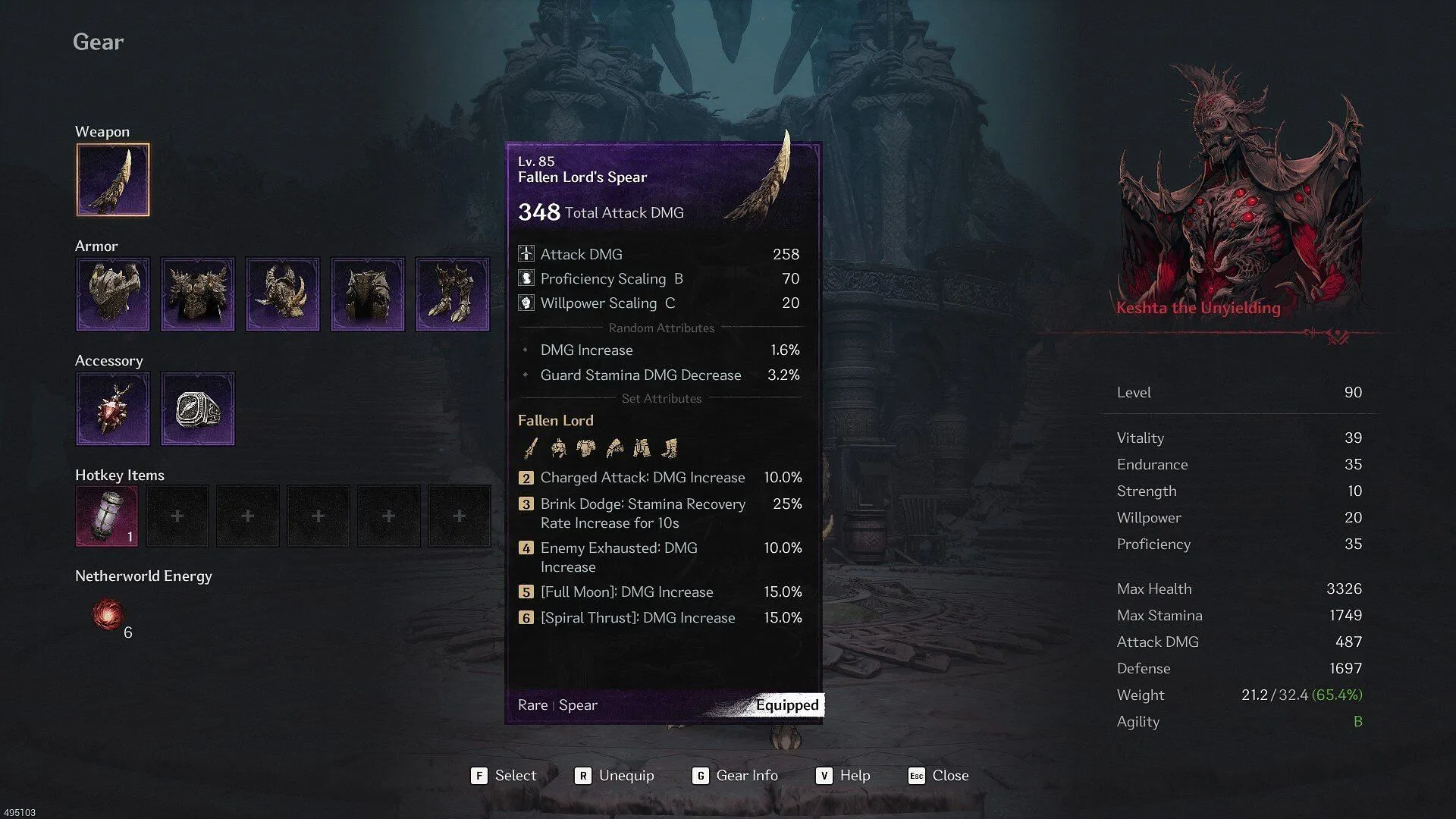
At first glance, the progression system of The First Berserker Khazan resembles that of the Nioh series, featuring loot drops, crafting, and weapon augmentation. While reminiscent of those mechanics, it ultimately serves a different purpose.
Unlike Nioh, where loot heavily influenced gameplay, Khazan relies more on player skill and combat mastery. While weapon and armor choices certainly influence your playstyle, the core progression centers around developing your character’s abilities.
Beneath the surface of loot-driven gameplay, the journey unfolds as players refine their skills. Early game loot abundance can feel overwhelming, but transitions later into a more manageable role, fostering a focus on mastering combat rather than a constant churn of gear.
The crafting system allows players to customize and enhance weapons, while set bonuses reward cohesive playstyle, making it unnecessary to constantly swap gear. I particularly enjoyed the Fallen Lord’s set, which emphasizes a more aggressive strategy.
The skill trees for each weapon type echo the complexity of the Nioh titles but become intuitive as players progress. Mastery of skills turns combat execution into second nature, creating anticipation for boss encounters just to showcase newfound abilities.
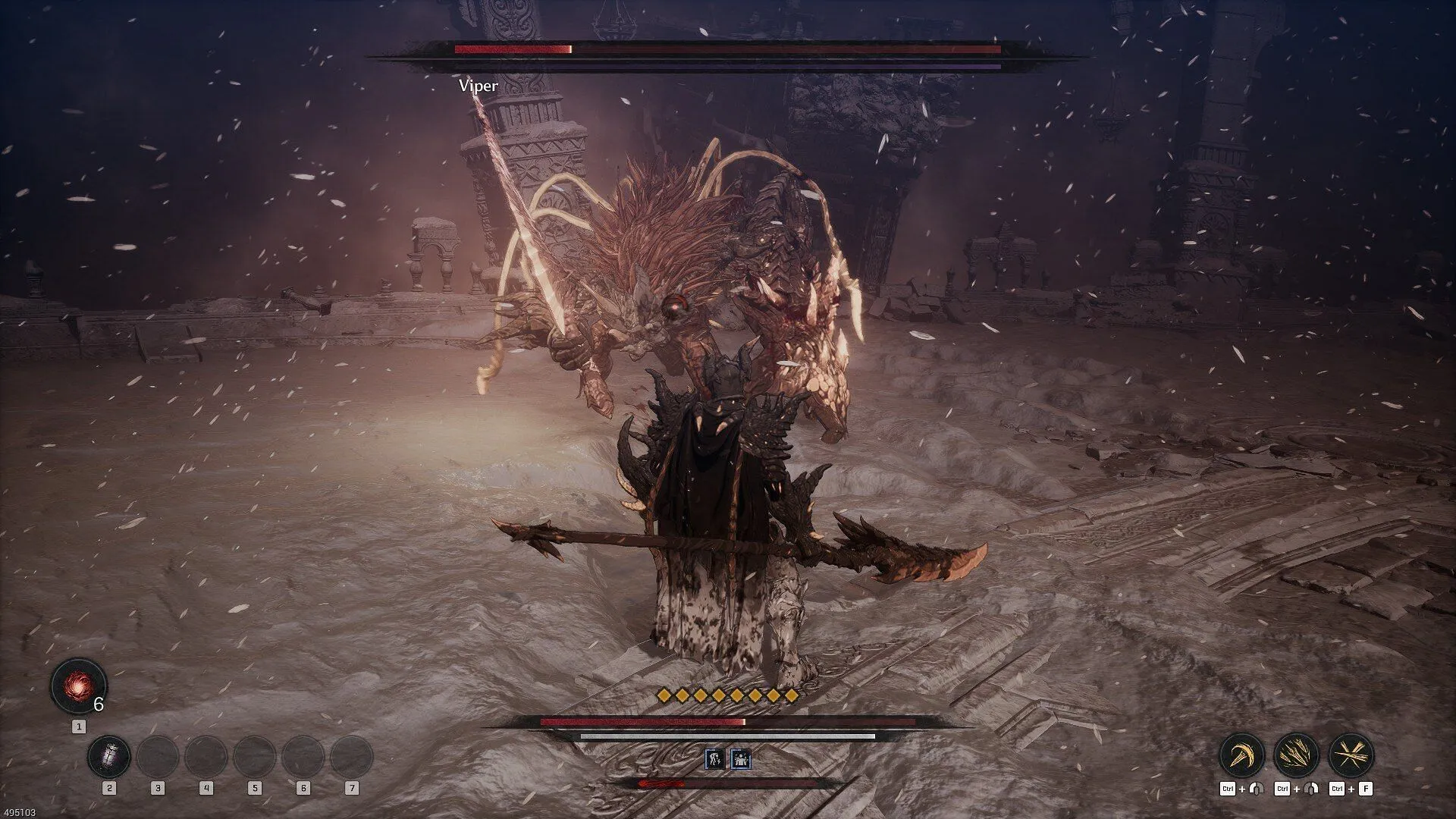
In addition to the skill trees, a traditional leveling system operates similarly to popular souls-like games, where defeating foes yields resources for character enhancements. However, leveling not only defines your base stats but also underscores the importance of player command over the systems at play.
During my playthrough, there were times when I felt under-leveled in late-game zones but still managed to prevail against bosses, emphasizing skill over pure grinding. This flexible design offers players a range of pathways to progress.
A Gripping Revenge Tale Enriched by Production Value
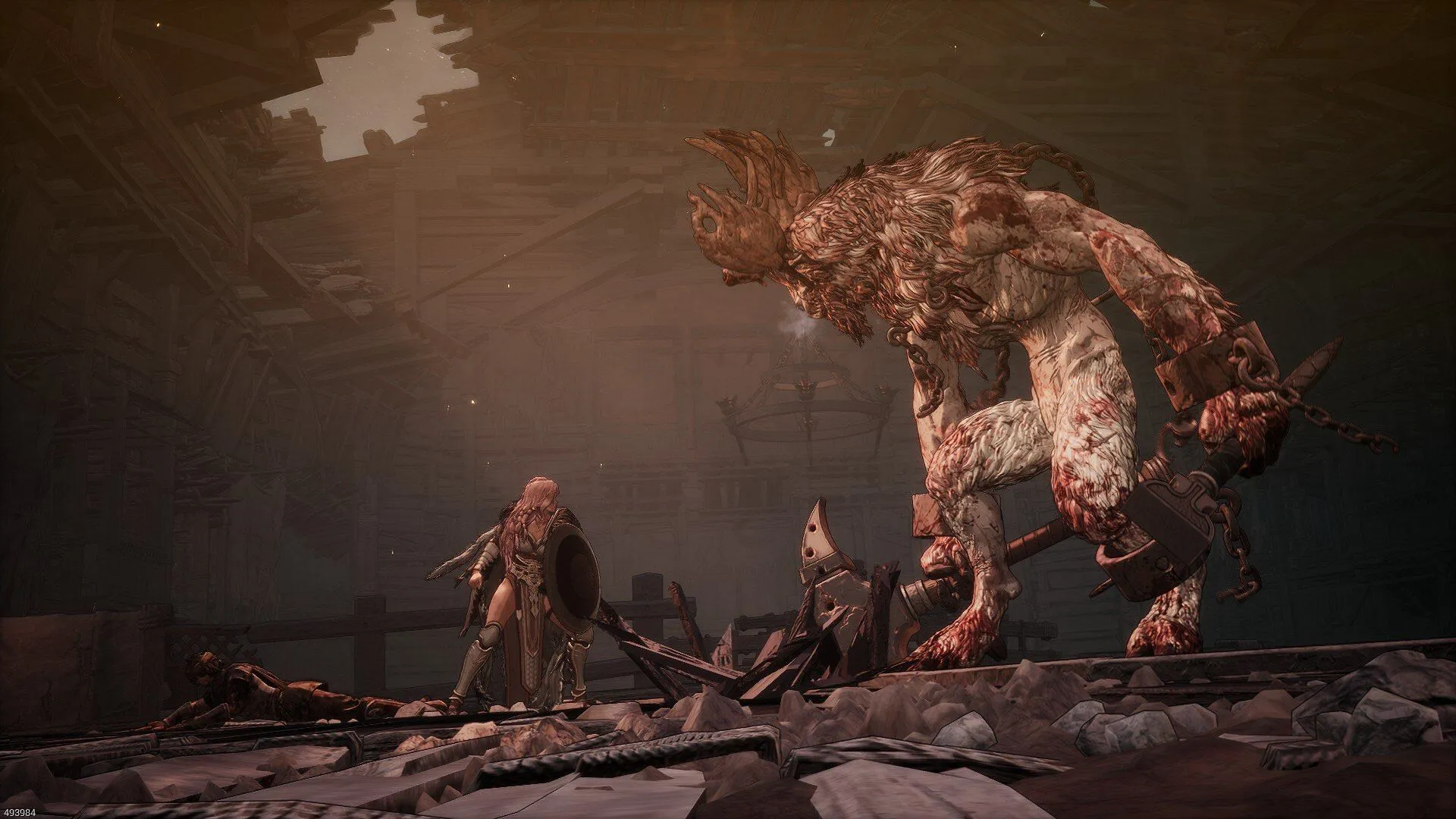
Critics often note that souls-like games struggle with storytelling, a point I can empathize with. While I personally appreciate the lore, deeper narrative efforts could enhance immersion in these exquisitely crafted worlds. However, my expectations for The First Berserker Khazan were surpassed.
The game is set in the Dungeon and Fighters universe, yet remains a standalone narrative. Initially skeptical, I anticipated skipping cutscenes, fearing an inability to follow the plot. Surprisingly, I found the narrative engaging and accessible.
The First Berserker Khazan captivates through a revenge-driven story featuring intriguing characters and plot developments that kept me engrossed throughout my 70-hour playthrough. You step into the shoes of Khazan, a war general turned traitor, navigating a tale that intertwines betrayal and revenge.
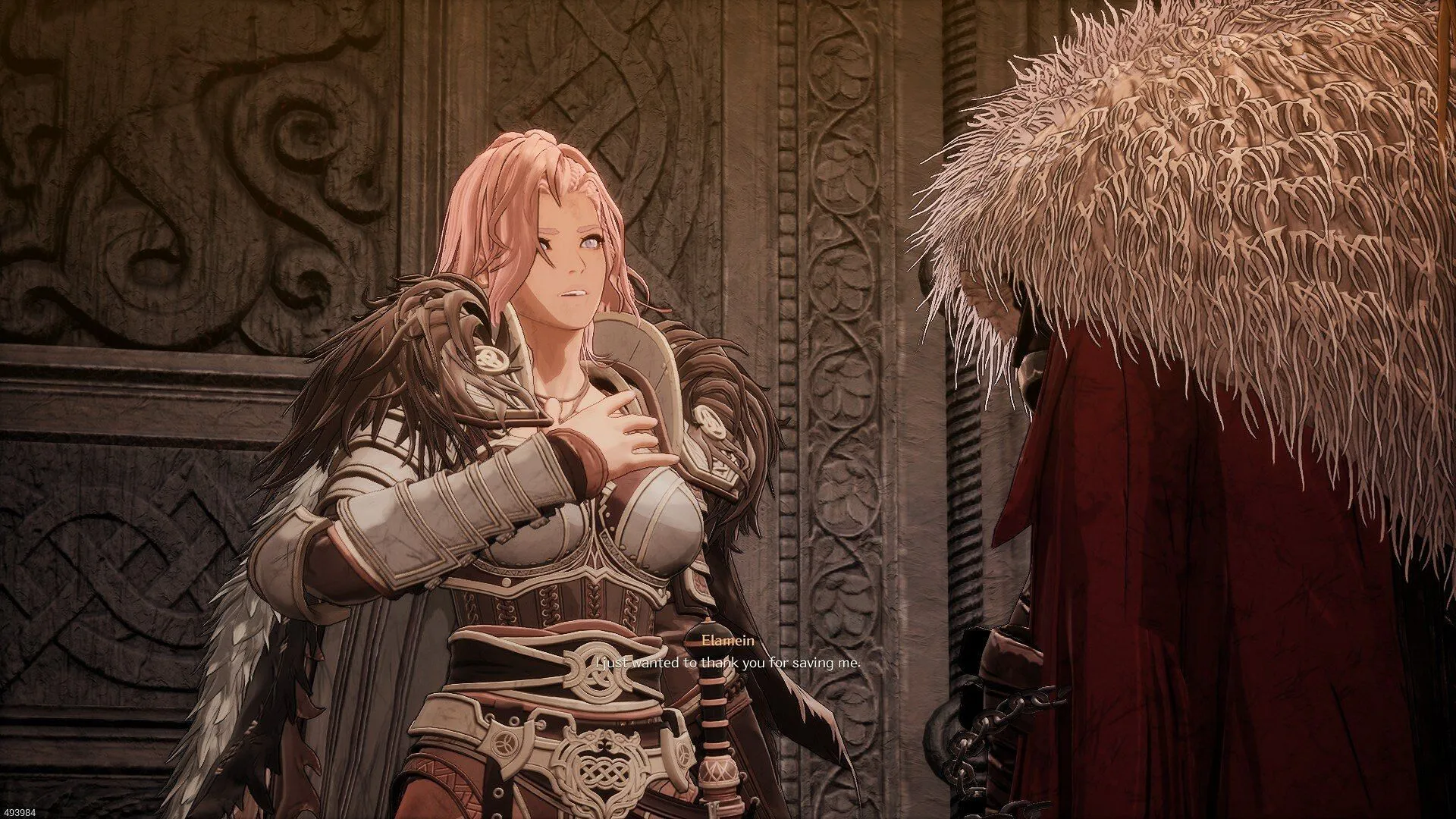
After being wronged by the Emperor, Khazan’s quest for vengeance adds depth to a compelling narrative. Although the story starts slowly, it ramps up, integrating unexpected twists and character developments that bring this world to life.
For fans of intricate narratives, The First Berserker Khazan exceeds expectations, feeling reminiscent of titles like Bloodborne and Lies of P, known for their narrative complexity. The voice acting also deserves mention; particularly Ben Starr’s portrayal of Khazan brings a gravitas that resonates.
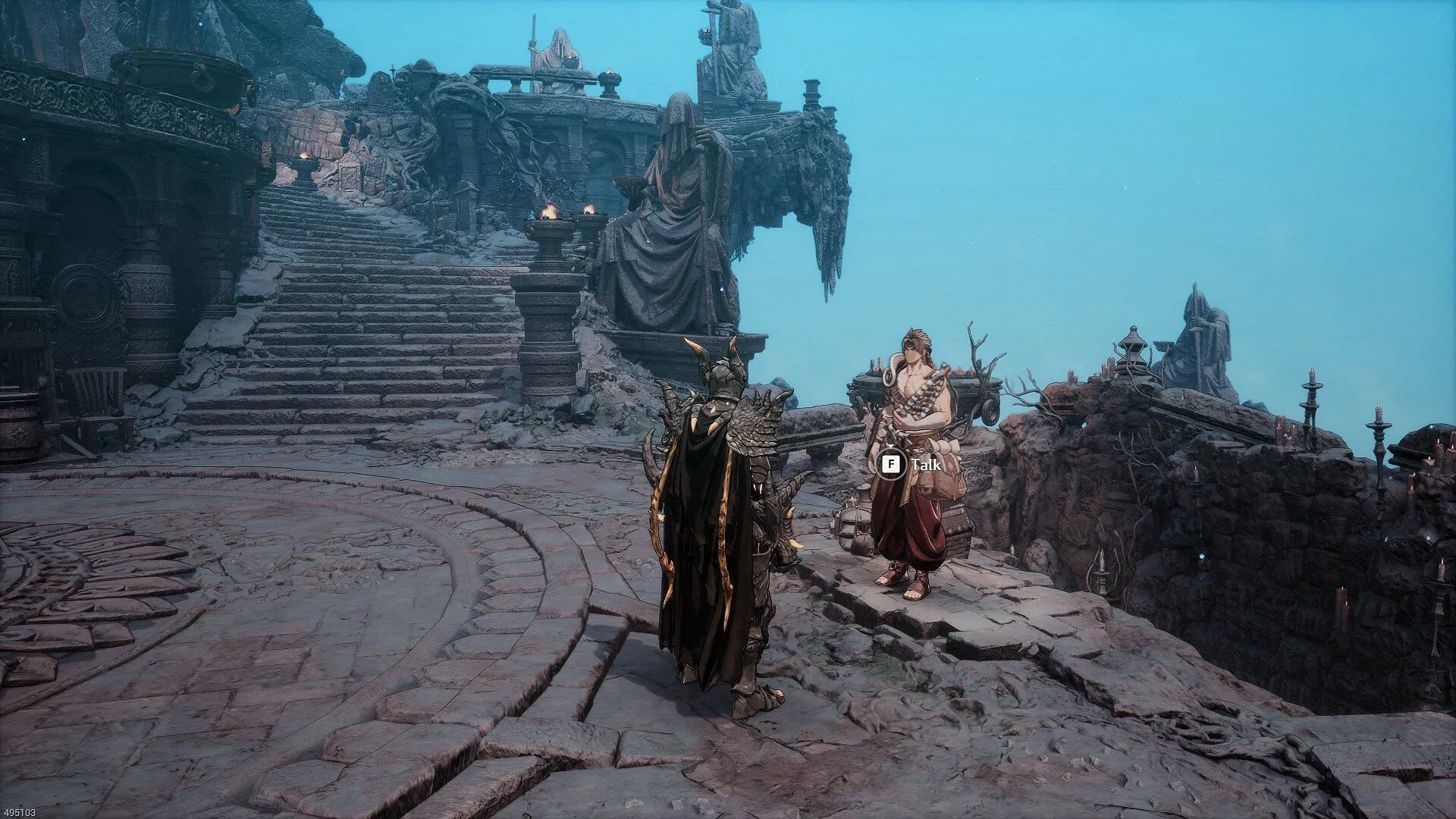
Overall, the performances, including Anthony Howell’s as the Blade Phantom, contribute to creating an enthralling audiovisual experience. The layer of character voicework enhances the already intricate storyline and establishes deeper connections to the narrative.
Minor Setbacks
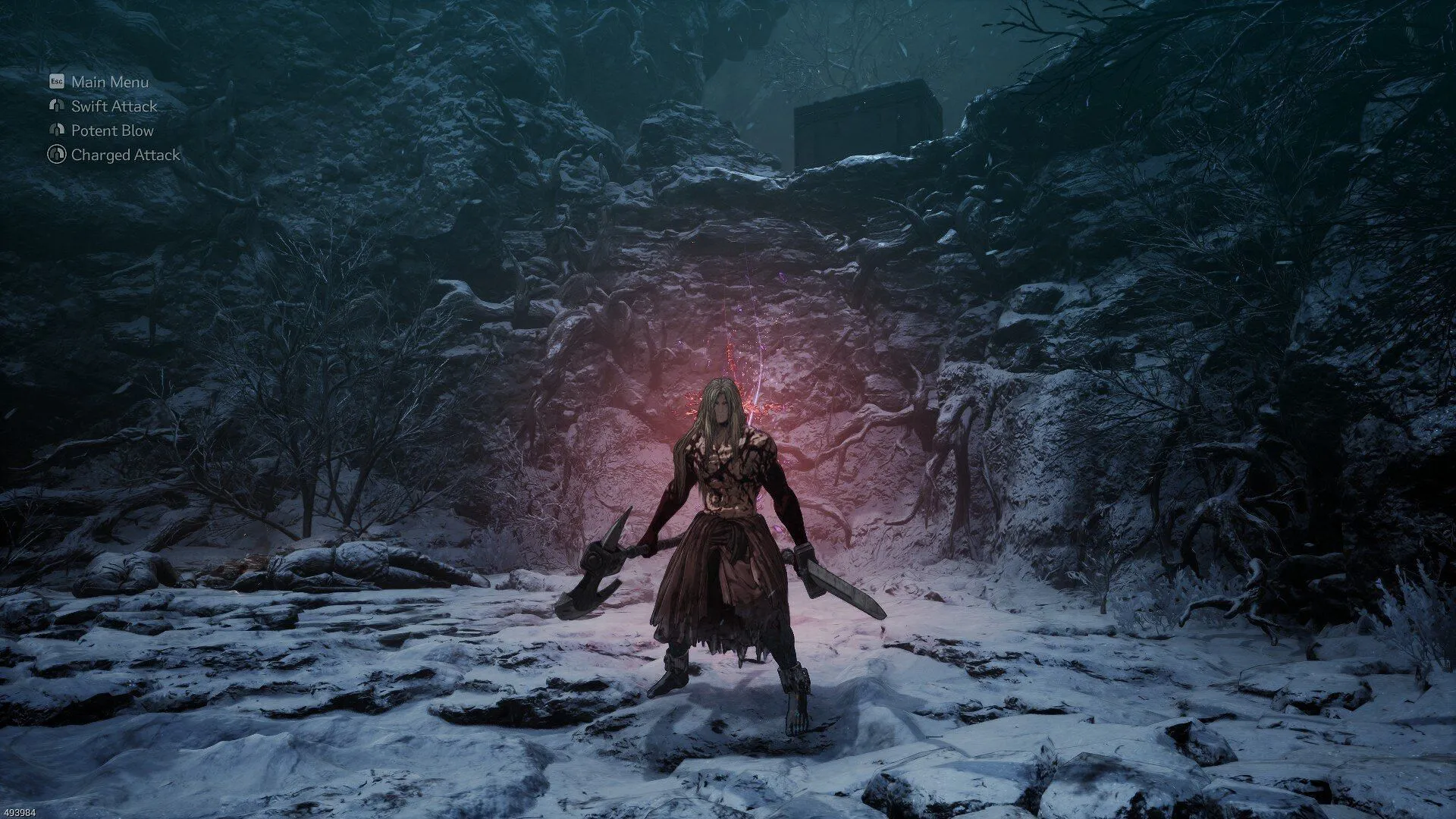
In conclusion, The First Berserker Khazan stands as one of 2025’s top gaming experiences. It’s a game I’d likely revisit for sheer enjoyment, achieving a balance of challenge without sacrificing fun—something rare in the souls-like genre.
Neople has successfully created an engaging and polished product, though it isn’t without some issues. Graphically, it performs well, though I did encounter occasional crashes and the familiar stuttering common to Unreal Engine 4 games.
During boss fights, this stuttering manifested, leading to frustrating moments of damage taken due to limited responsiveness. Moreover, issues with Nvidia Reflex caused sporadic input delays, somewhat hampering gameplay fluidity.
Another point of contention is the game’s difficulty curve. While many players may appreciate a challenging experience, the later stages can spike unexpectedly. Even with well-upgraded equipment, many bosses were capable of eliminating me in one or two hits, which feels excessive for end-game encounters.
Fortunately, the option to lower difficulty provides a safety net for those who find themselves struggling. Despite being one of the more challenging souls-likes, its accessibility offers newcomers a smoother experience.
Final Thoughts
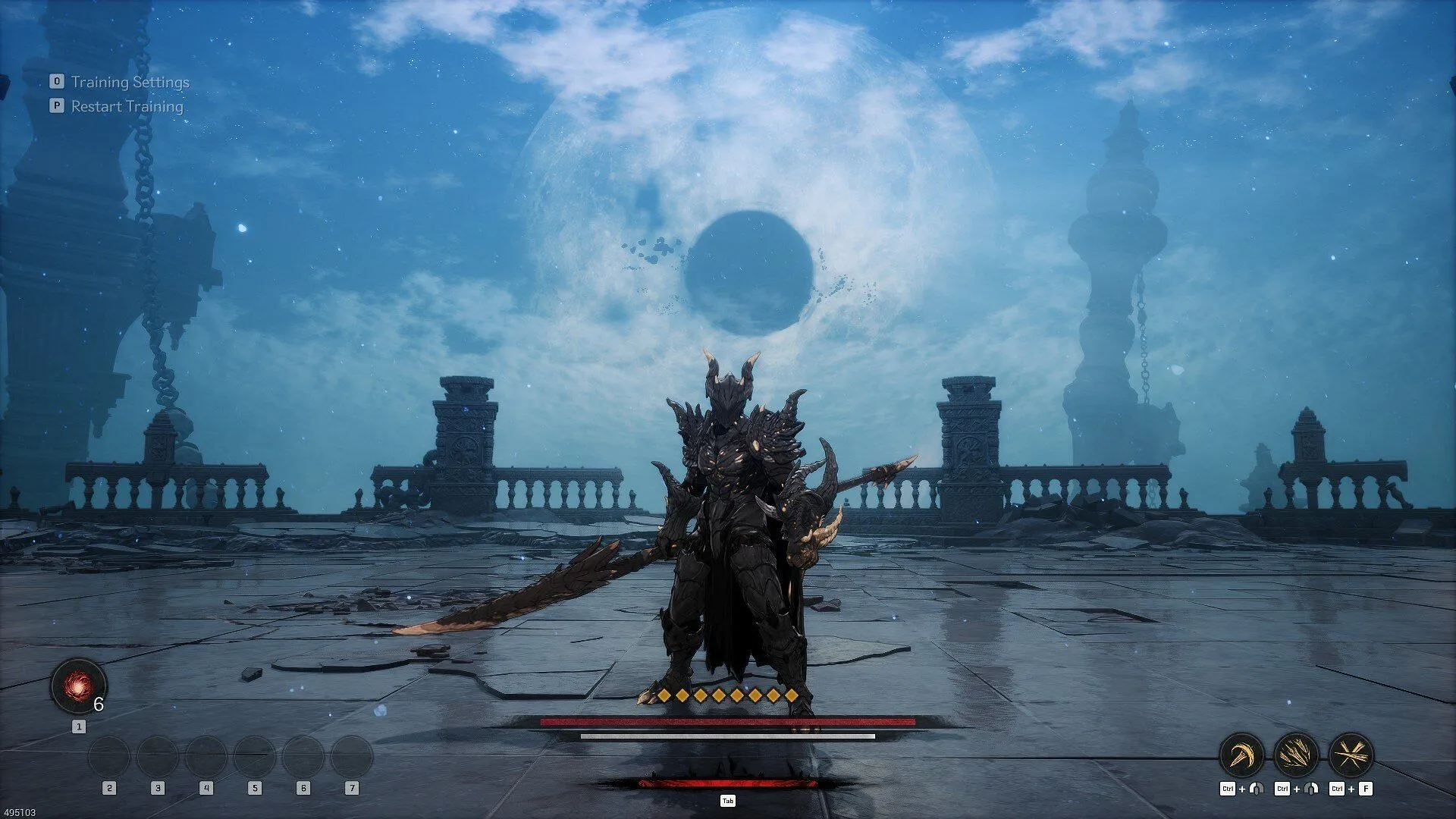
Ultimately, The First Berserker Khazan emerges as a noteworthy contender in the souls-like genre, standing shoulder to shoulder with titles like Lies of P and the acclaimed FromSoftware entries. Despite minor technical setbacks and a pronounced difficulty curve, these issues pale in comparison to the overall quality of this new installment.
With its robust combat mechanics that prioritize player skill and an enjoyable overall experience, The First Berserker Khazan proves to be a rare gem among modern titles.
The First Berserker Khazan
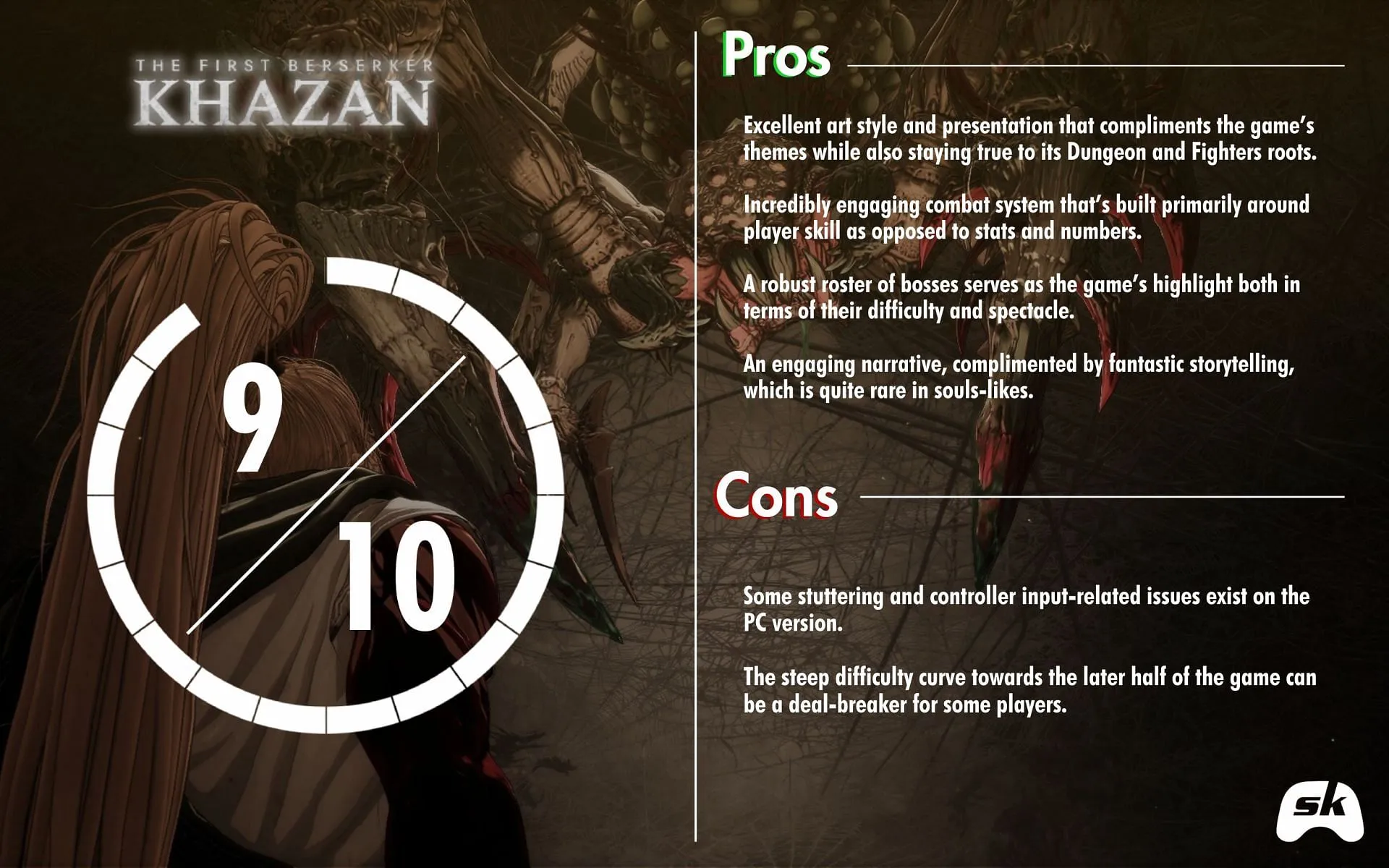
Reviewed on: Windows PC (Review code provided by Nexon)
Platform(s): PS5, Xbox Series X|S, Windows PC (Steam)
Developer(s): Neople
Publisher(s): Nexon
Release date: March 27, 2025
